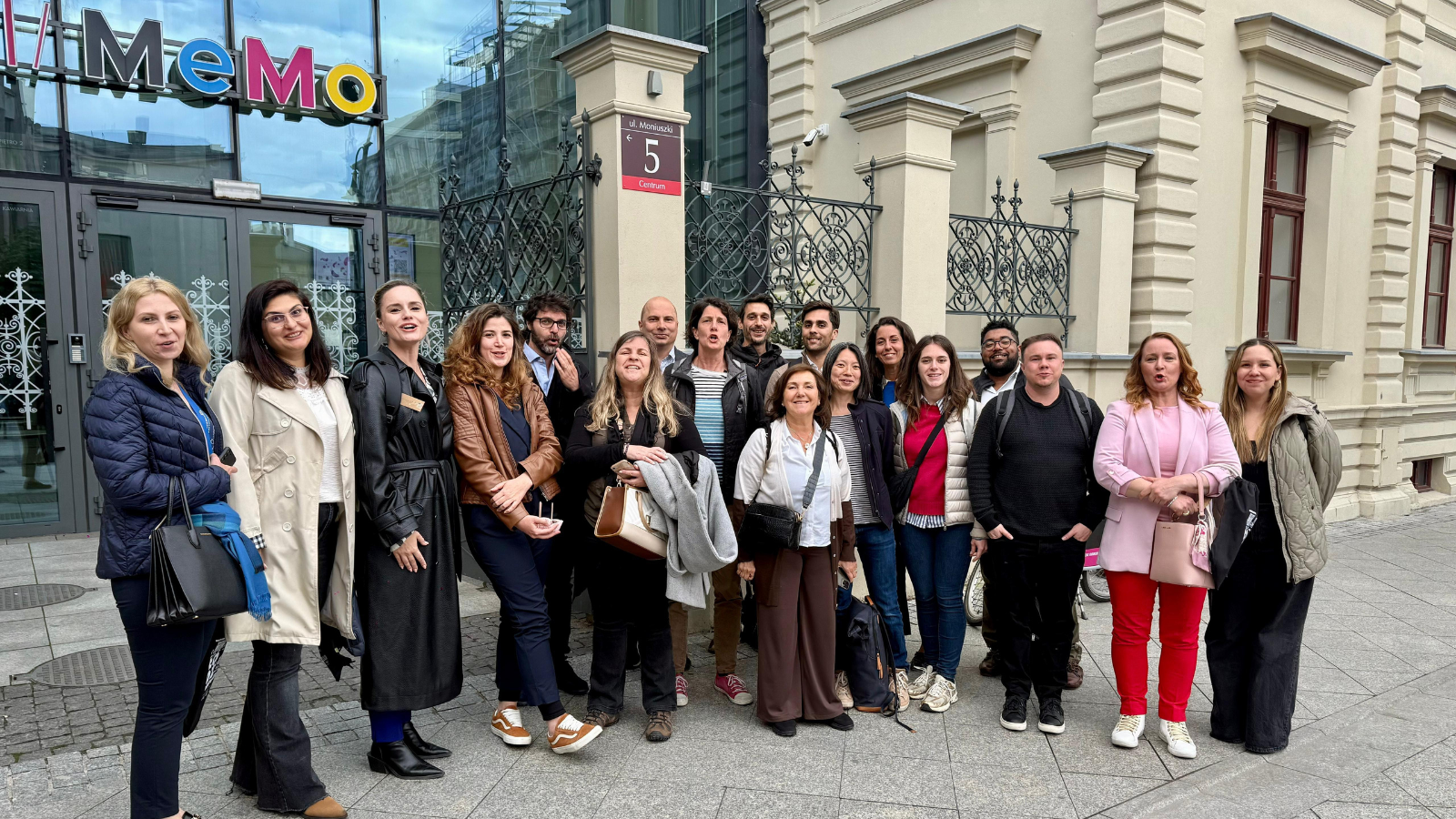
22.05.2025
WeGenerate Demo Cities Share Progress Towards Sustainable Urban Futures
On 20 May 2025, we gathered in Łódź (Poland) for a WeGenerate Consortium Meeting. Among presentations from the project’s Work Packages, each Demo City presented concise updates on the status of their action plans, highlighting milestones achieved and next steps in advancing urban sustainability and community engagement. An update on the “Fellow Cities Exchange Programme”, as part of WeGenerate Capacity Building, Replication and Exploitation workstream, was also provided.
Tampere has made significant strides in deploying digital tools to support urban planning and stakeholder participation. The Station Area Digitwin is fully operational and has been tested in three resident workshops, engaging 40 participants in discussions on sustainability, safety, accessibility and inclusivity. The enriched Digitwin for entrepreneurs—featuring an AR app now in beta—stands at 50% completion, with an AI-driven interactive agent under development and user interviews forthcoming. Meanwhile, data collection efforts around lighting and safety in the Laikunlava stage area have involved over 1,000 residents, and are on track to launch a series of interactive installations and gamified experiences later this year.
Cesena reports a balanced progression across six thematic actions. Its overarching regeneration framework (“fil rouge”) is 30% complete, supported by the appointment of a local facilitator and launch of initial stakeholder roundtables. Active mobility initiatives are at 20%, with awareness workshops planned for autumn 2025, while the Park & Ride service has reached 50% readiness, pending a May 2025 pilot launch. Greening interventions and microclimate monitoring both stand at 20%, with community co-design workshops slated for summer 2025. The urban digital platform prototype and the Digital Twin for building renovation decisions are both on track for further stakeholder consultations this year.
Cascais has concentrated on groundwork for its social housing energy community, completing rooftop PV installations. From February 26 to April 20, a neighbourhood survey captured resident insights on energy use, environment, socio-economic conditions, inclusion, amenities and mobility; analysis began on late April and remains ongoing. Preliminary findings reveal widespread energy poverty, low energy literacy and limited awareness of renewable practices. In response, Cascais plans a multi-channel information campaign and a series of co-creation workshops and “energy cafés” through mid-2025 to build trust, raise awareness and co-design future energy solutions.
Bucharest is advancing its campus-centred retrofit and regeneration actions with notable momentum. The deep retrofit solution for the student canteen is 80% realized, including a technical report and heat pump proposal. Public space regeneration has reached 60%, driven by student and community design competitions and hands-on workshops, with continuous feedback loops ensuring alignment with resident needs. Co-design activities with UTCB students are fully complete, while engagement workshops with residents and schoolchildren report great progress. Early-stage efforts include a Shared Energy Centre platform and Digital Twin development, both laying the groundwork for future energy-sharing and data-driven urban planning on campus.
The Fellow Cities Exchange Programme update highlighted two key areas of progress. The first focused on the design and delivery of a multi-stage capacity-building offer, which began with mapping the needs and synergies between the demo and Fellow Cities. This informed the rollout of a four-part training and exchange package. The second strand centred on the development of Replication Roadmaps by the Fellow Cities. Each city has started compiling information on its intended intervention areas, feeding into a structured and evolving roadmap. This iterative process allows cities to gradually define how they will adapt and implement WeGenerate innovations within their local contexts.
Each Demo City demonstrates a clear trajectory: from digital innovation and participatory tools in Tampere, through Cascais’s community-driven energy groundwork, Cesena’s multi-modal and greening experiments, to Bucharest’s campus-focused regeneration. In parallel, the Fellow Cities Exchange Programme is progressing well, offering targeted learning, peer support and on-the-ground insights to ensure that Fellow Cities are well prepared to replicate and scale the achievements of the Demo Cities
Collectively, these updates underscore the Consortium’s commitment to scalable, inclusive and data-informed urban transformation.
We also had the pleasure of hearing from Aleksandra Trzcińska, euPOLIS Project Manager at the Revitalisation Office of the City of Łódź, who shared how the city has revitalised buildings and neighbourhoods through close collaboration with its citizens. She also led us on a walking tour of urban renewal projects in the city centre, offering valuable insights into Łódź’s transformation efforts.
SHARE THIS ARTICLE